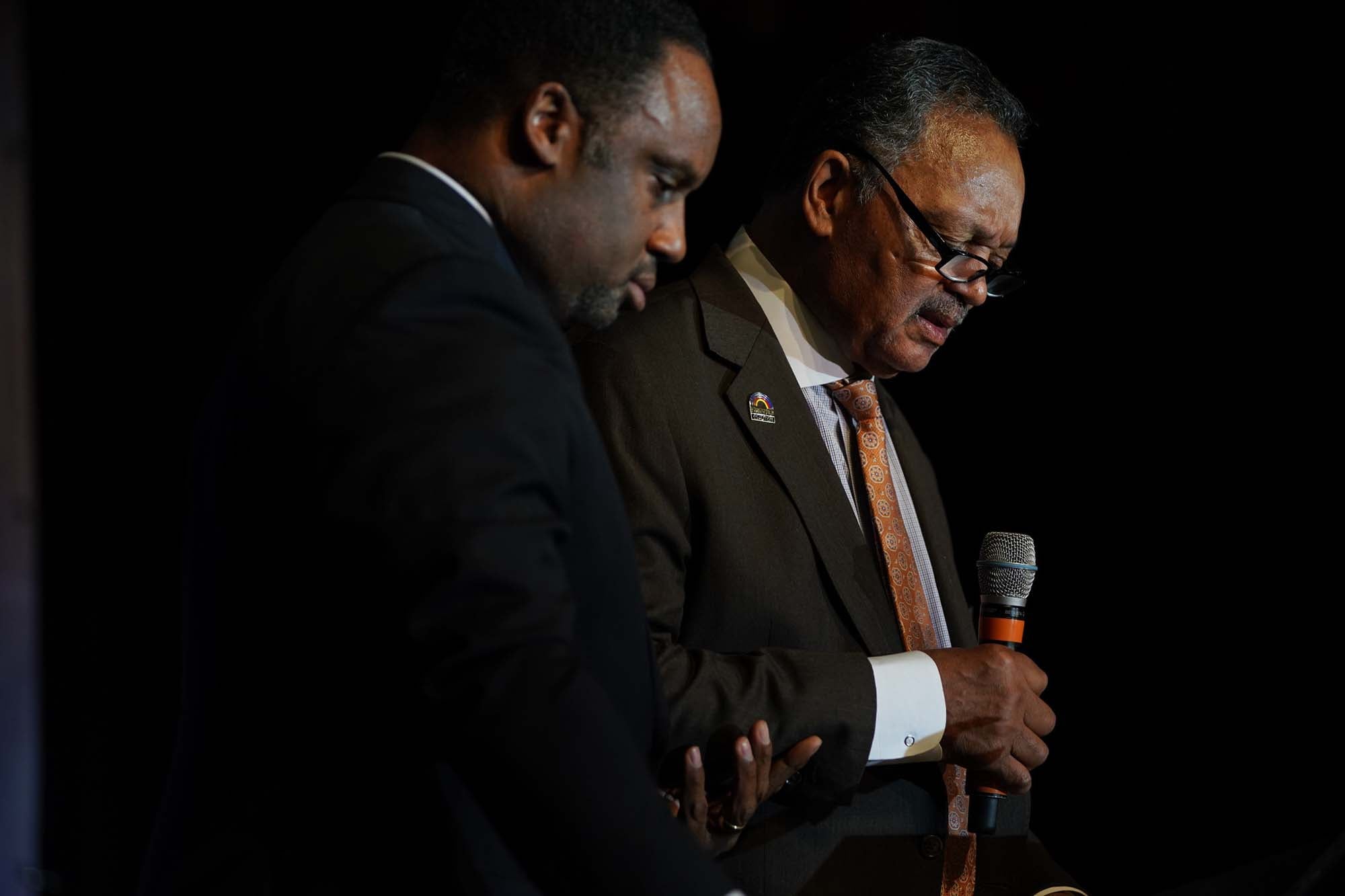As the death toll continues to rise to staggering heights in the Gaza Strip, calls for a ceasefire in the region have also gained popularity. Democratic voters now overwhelmingly support a ceasefire, a position not shared by the majority of elected Democrats.
Suggested Reading
Still, a relatively small number of Democratic elected officials have spoken out, including Representatives Cori Bush, Rashida Tlaib, and Ayanna Pressley. Among that group is freshman Congressman Jonathan Jackson (D-IL.), son of civil rights activist Rev. Jesse Jackson.
The Root sat down with Representative Jackson to discuss why he signed on to the Ceasefire Now resolution and how this ties into the larger civil rights movement.
“I see a connection that African Americans have with the Jewish community. I understand the pain and the fear and the horror and the trauma they experienced with the attack on the civilians,” says Jackson. “I also understand what occupation looks like. Palestinians in the West Bank and Gaza don’t have free access and mobility and have limited access to their development; that’s a horrifying, terrifying place.”
Jackson says that this isn’t about support for Israel or the Jewish community. “We can support Israel and support the Jewish community but disagree with [Israeli Prime Minister Benjamin Netanyahu],” says Jackson. “Those are two separate issues.”
The American public has poured billions into Israel’s military and deserves answers, he says. “Mr. Netanyahu, can you tell us when this retaliation ends,” asks Jackson. “I understand it’s 10,000 bombs a day or a week now; I mean, the soil is contaminated. People aren’t going to be able to move back onto this land. It’s creating this forced humanitarian crisis and moving 1.5 million people into refugee camps and still striking refugee camps... and striking almost every hospital in Gaza. I just think it’s fundamentally wrong.”
Jackson says that the need for reconciliation after horrific violence is echoed throughout history, particularly Black history, noting the aftermath of the Rwandan genocide as a prime example of what reconciliation can look like. “And that’s why I stand on the side of a ceasefire and wanting to be a peacemaker,” he says.
Jackson knows that there are members of his own party that disagree with him. “I respectfully disagree with their criticism,” he says. “If there’s one child’s death that could have been avoided, I feel vindicated. If there was 100 children’s deaths, it could have been avoided. I feel vindicated. If there’s 1,000 Children deaths, I feel vindicated.”
Elected officials aren’t the only ones facing heat for calling for a ceasefire. On college campuses throughout the country, students (particularly students of color) have been doxxed and harassed for sharing calls for a ceasefire. Jackson says that while hate speech has no place in our democracy, attacks on free speech are wrong. “Young people. Keep expressing, keep your ears open, keep your hearts open, and keep fighting for reconciliation,” he says. “Keep expressing your opinions. That will only make a sharper and better Democracy.”
“If you look over American history, many people that had dissenting opinions were actually the people that we now call our most courageous and most admirable patriots,” says Jackson. “Martin Luther King Jr. had a dissenting opinion. People that we idolize now had to take ferocious criticism in their lifetime.”
Straight From 
Sign up for our free daily newsletter.



